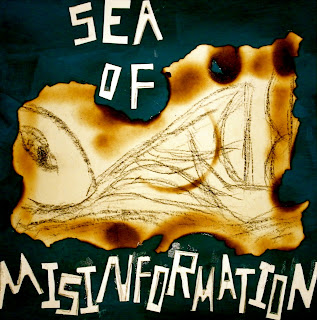The article that we read had a lot of information that I agree with included in it and one that I found particularly interesting that I wanted to touch on before describing a personal instance where I, and most of America, was misinformed is what the author says about free speech. The author posed the assumption that many may believe that limiting information may deny us our first amendment rights. However, he makes the valid point that a man who yells "FIRE" in a theater is not protected under this amendment. This, I feel, is true for media sources that falsify information. I agree that there are times where maybe the media source itself was misinformed and report falsely, but this may be the same as a man yelling "FIRE" when he truly believes that it really is a fire. For media to misinform their views, readers, or subscribers so that they may have the view point that would benefit them or a political standpoint, whatever it may be, is extremely detrimental to America in my belief.
One time that I remember I was misinformed was after the terrorist attacks of September 11, 2001. Shortly after this tragedy that was imposed on all of America the United States invaded Iraq and Afghanistan. Former President Bush made the report that the reason we were invading Iraq was because of "weapons of mass destruction". Surly most citizens felt it was necessary to go in an remove these weapons so America could feel safe. However, after a few months the story came out that there were no weapons of mass destruction found in the country and it is assumed that there never were. The speculation was that President Bush, and I am sure other members of his staff, wanted to invade Iraq, as well as Afghanistan for terrorism, was to find the person that was believed to be behind the 9-11 attacks, Osama bin Laden. After finding out that Osama was not even in Iraq but hiding in Afghanistan the invasion was targeted at rebuilding Iraq and its government. The war in Afghanistan was a legal war against terror, whereas the war in Iraq was illegal (according to the UN charter) and not approved by the United Nations. The misinformation led me to believe that we had a legitimate reason for entering Iraq and I was not as opposed to it before I found out that there were never any weapons of mass destruction. However, once the troops were in the country, they were not going to be deployed as easily. Many people are misinformed everyday whether intentionally or unintentionally. I think that the cycle will never stop but needs to be improved in media sources.
^^^^Misinformation^^^^ =)


Love the last photo! Bandwagon effect is common when the information comes from government...most of us are just naturally inclined to believe what our President tells us.
ReplyDeleteI was taken in by the threat of "weapons of mass destruction" as well! I thought of using that as an example in my blog, but I ended up using a different one. It's interesting how the bandwagon effect in the government seems to depend on the popularity of the President. Once Bush starting losing popularity, people began to stop believing the that the weapons existing. In fact, this spreading disbelief made him even more unpopular as it spread.
ReplyDeleteI'm so glad you brought up the WMD issue! I definitely thought the same thing. It's kinda like all the cognitive biases. It's like the bandwagon effect because the majority believes what the President has to tell us. It's also like cognitive dissonance because on the one hand, we want to beleive that what our President is the truth, and when we hear otherwise, we don't want to believe it. Learning about all these concepts definitely keeps me more of aware of how I perceive the media.
ReplyDelete